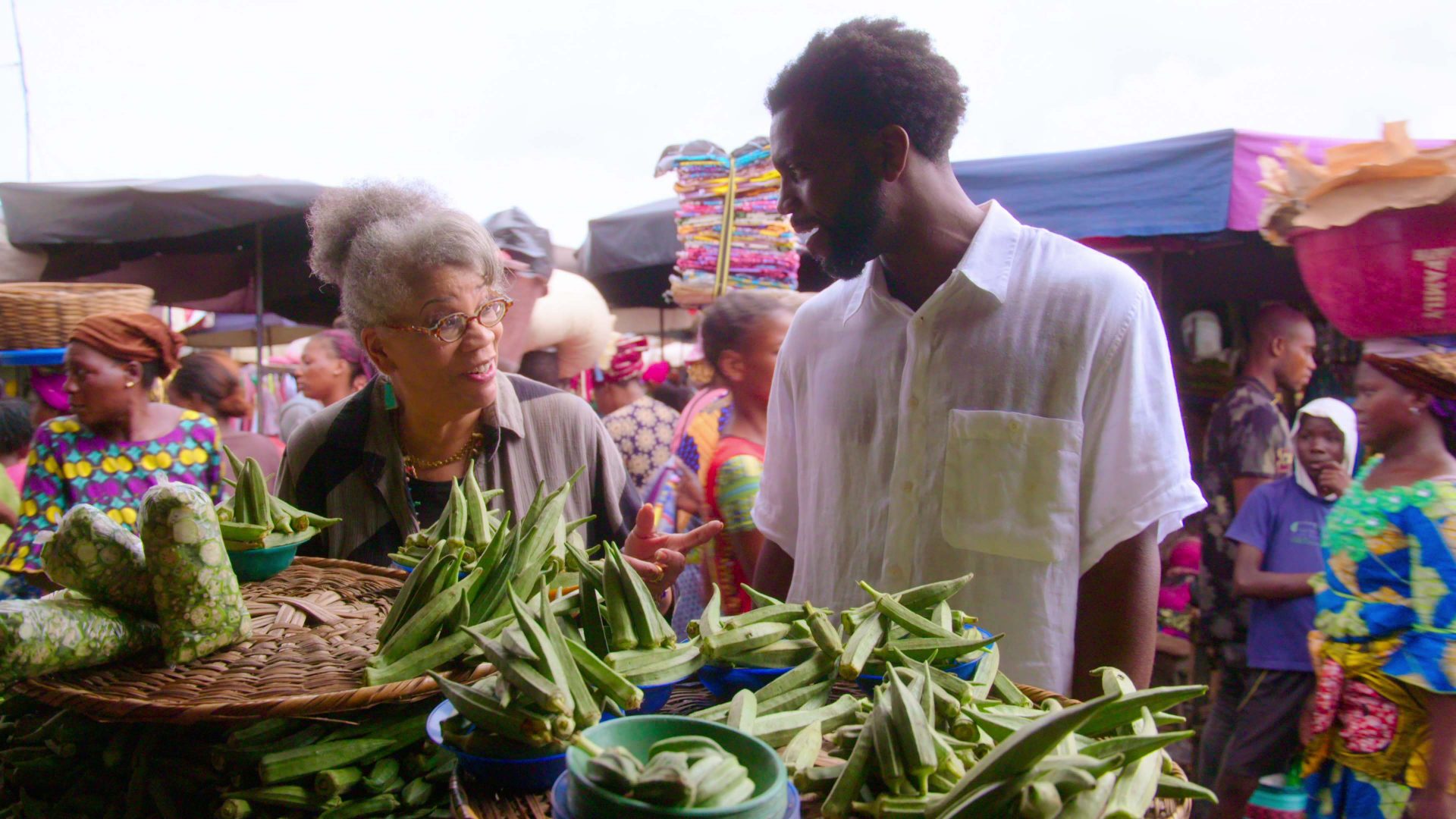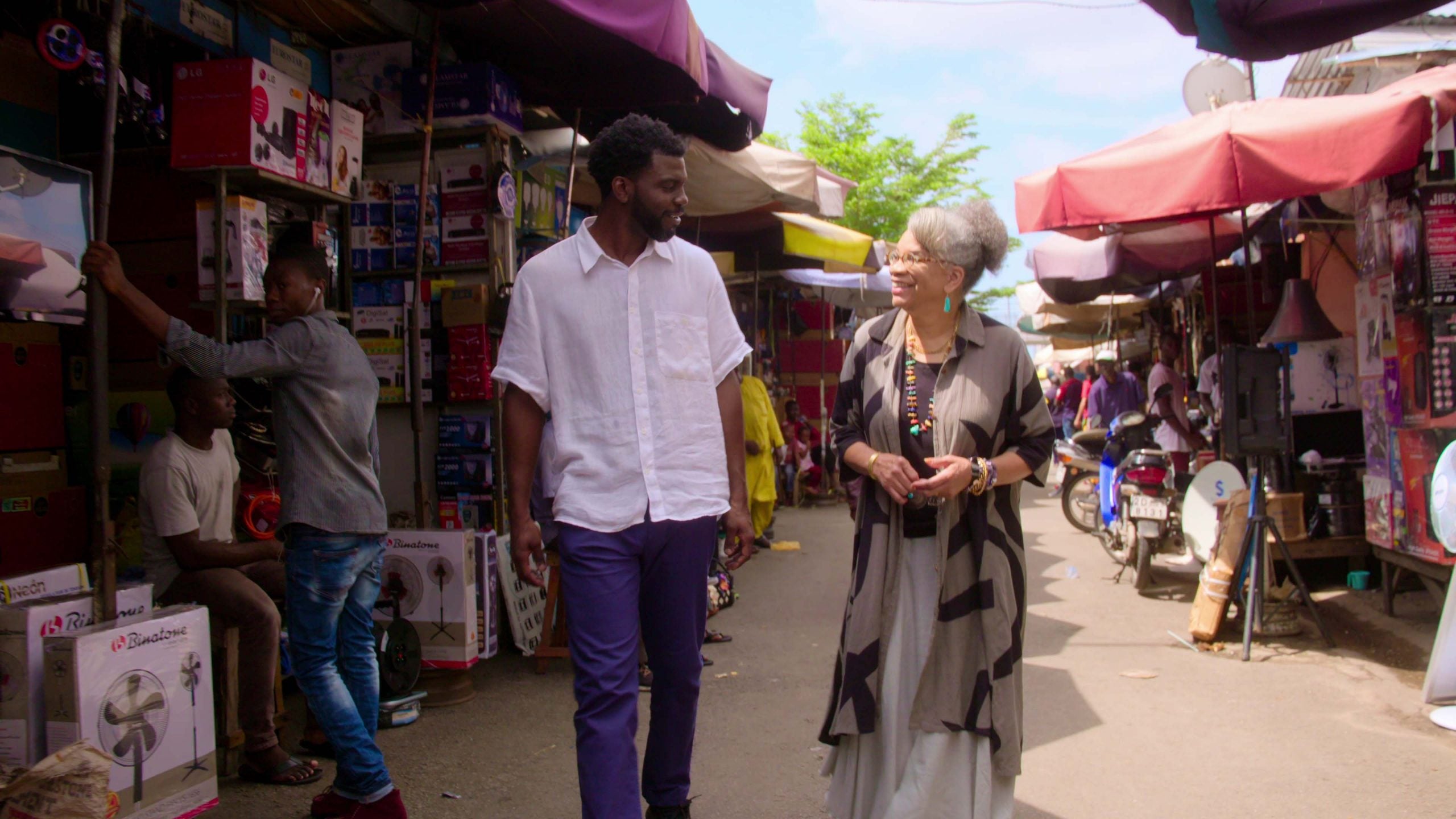
Everything has an origin story.
When food historian and James Beard Lifetime Achievement winner Dr. Jessica B. Harris first started writing about culinary delights from around the world, she was doing so for ESSENCE. The acclaimed writer and author was the book review editor for this very publication in the 1970s before becoming the travel editor and journeying through the African diaspora, sampling a plethora of meals.
“That was where I began to taste these foods, and to make these connections. ESSENCE was part of the beginning of it,” Dr. Harris tells ESSENCE. “I wrote a column called “The Go Gourmet,” and it aired every other month. I can’t even think of what they were all about, but that was some of my very first writing about food, and travel, and culture.”
It was the very beginning of a career that would explode, expanding into more than a dozen written works since 1985. And now, it’s expanding even further into television to tell the ultimate origin story.
Harris’s 2011 book, High on the Hog: A Culinary Journey from Africa to America, has been adapted into a Netflix limited series called High on the Hog: How African American Cuisine Transformed America, set to be released on Wednesday (May 26). Chefs, historians and even activists speak on the perseverance of Black people, and the resourcefulness and artistry that came from it, leading to the creation of innovative recipes that became staples in overall American cuisine. To see her work in this way is a feat that Harris admits is “astonishing,” as well as emotional for her.
“I am amazed.” she says. “It’s a very humbling and a very emotional moment, because a lot of the people that I’d love to be here to see it aren’t here. A lot of the people that I would love to share it with aren’t here, and yet it’s happened and it’s really extraordinary.”
Someone she has experienced it with her is Stephen Satterfield. A food writer, founder of the publication Whetstone Magazine and a self-proclaimed “origin forager,” he’s the host of the Netflix series. It begins in Benin, where Harris and Satterfield come together to discuss how staples found in American culinary favorites started in Africa. It’s a full-circle moment for him, as he calls Harris’s High on the Hog a “hugely influential” work for him, and says the author is someone he admires.
“She’s amazing,” he says. “I know that not just me, but so many of my fellow colleagues who are Black people in the world of food, either on the culinary side or the media side, we all revere her.”
“It was very trippy. It took some getting used to, because a lot of people have idols,” he adds of his time filming in Benin with Harris. “I love hooping, I love basketball, so I grew up idolizing Jordan. Young people have idols, and she is my literary idol. It’s not the same as being six years old and trading cards and stuff, but there is a quality of awe. There’s just this person who was like an intellectual giant for you, and now you’re kind of re-living their texts with them in Africa, on a Netflix series. There is just so many layers to it that I’m not sure when, if ever, it will sink in. Every time I talk about it, it just feels so, so surreal that it happened, but obviously I’m so grateful that it did.”

Like Harris, he says the series, filming and watching it back, has stirred many emotions for him. That comes from the balance High on the Hog strikes of telling the stories of Black people’s resilience in the United Sates, as well as of being “directly confrontational” and honest when putting a lens on the historical and social context of the places from which these stories emanate. That includes places like South Carolina, Virginia, Texas and Houston.
“We want it to be real in the telling. We want it to be real to our people and to the text,” he says. “But it’s also about the fact that we’re here, that we’ve made it, and that hopefully through this presentation, this adaptation of Dr. J’s work, we’re able to inspire a new generation to carry forth their traditions and even grow our impact from there.”
As they hope the limited series will inspire the next generation of chefs, historians, activists, and idols, Harris would have loved to have her own idol present, her mother, to share in this moment with. In her own origin story, even before her work with ESSENCE took her around the world to try global flavors, she was first introduced to new traditions and tastes at home.
“I got started with my love of food at home, through my mother,” she says. “I grew up cooking and having some knowledge of food, and a mother who was tolerant and let me play with things. The first thing I ever made was something called coo-pie cake. It was a little flat pie crust thing. She had given me a piece of pie crust, and I had mashed it down in some way. I remember red food coloring was involved, as was sugar. She baked it, and when it came out we ate it, and we called it coo-pie cake. That would be because it was not a cookie, it was not pie, it was not cake. And so when my first book came out, first cookbook, I remember writing in her copy of it, and she always got the first copy of any book I wrote. I would say, ‘We’ve come a long way from coo-pie cake.'”
She certainly has.